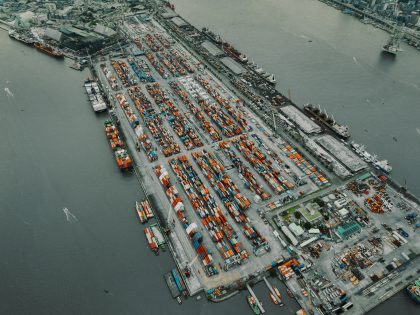The Match for Occupation
Diego Maradona makes excuses for Morocco's occupation of Western Sahara.

Diego Maradona, via Wiki Commons.
Diego Maradona is considered as the greatest footballer of all time and scorer or the “Goal of the Century.” And now, it seems, a willing apologist for the Moroccan occupation of Western Sahara. According to a number of news reports, as well as posts on Maradona’s official Facebook page and the Twitter account of former Egyptian football great, Mohamed Aboutrika, the two of them are set to return to Morocco along with other former stars of the game — including Brazil’s Rivaldo, Ghana’s Abedi Pele, and Liberia’s George Weah — and former Moroccan players for a so-called “Match for Peace” tomorrow. Organized by the Royal Moroccan Football Federation, the match will take place at Sheikh Mohamed Laghdaf Stadium in Laayoune, the capital of occupied Western Sahara.
The announcement on Maradona’s official Facebook page reads: “Match for Peace in Morocco, next Sunday November 6. With great football stars: Rivaldo, Noureddine Naybet, Abedi Pele, Mohamed Aboutrika and George Weah.”
This is all deceiving. Less a match for peace, the game is part of Morocco’s wider efforts to project a positive international image and normalize its occupation. It marks the 41st anniversary of the so-called Green March, an event orchestrated by the previous Moroccan king, Hassan II, during which hundreds of thousands of Moroccans crossed into Western Sahara in 1975. While it is something to celebrate for Morocco, for the Sahrawi of Western Sahara it marks the invasion and partial occupation of their homeland by Morocco in 1975, forced exile for many, and serves as a painful reminder of the unfulfilled promise of self-determination.
This is not the first time Maradona has done this. (He has a jumble of contradictory politics and associations anyway. See here, here and here.)
In 2015 Maradona participated in a similar match to the mark the fortieth anniversary of the event, along with Aboutrika, Pele, Weah, and apparently others such as Brazilian Gilberto Silva. Maradona even played for free. Yet international criticism was muted at best.
Following this year’s game, Maradona will reportedly attend the opening of the 22nd Conference of the Parties (COP22) climate summit in Marrakech, Morocco. Sahrawi activists have criticized Morocco’s hosting of the summit as an attempt to greenwash the occupation.
The Sahrawi already have to contend with the overwhelming indifference of much of the international community and a Moroccan occupier steadfastly backed by powerful allies such as France, and to a lesser extent Spain and the United States. And now, at a time of heightened tensions due to growing frustration with the continued postponement of the promised referendum on self-determination, sports events such as the one Maradona and the other foreign stars will take part in do not promote peace. Instead they only serve to help Morocco whitewash the occupation.
A truly exceptional footballer but a truly misguided political statement.



















